Part of george w bush era crossword – Embark on an intellectual adventure as we delve into the intriguing world of George W. Bush’s era through the captivating lens of a crossword puzzle. This interactive exploration promises to illuminate the complexities of his presidency and its lasting impact on American society and the global stage.
From the pivotal events of September 11th to the transformative policies that shaped the nation, this crossword puzzle serves as a comprehensive guide to the era, challenging your knowledge and inviting you to uncover the hidden connections that defined this chapter in American history.
Historical Context of George W. Bush’s Era
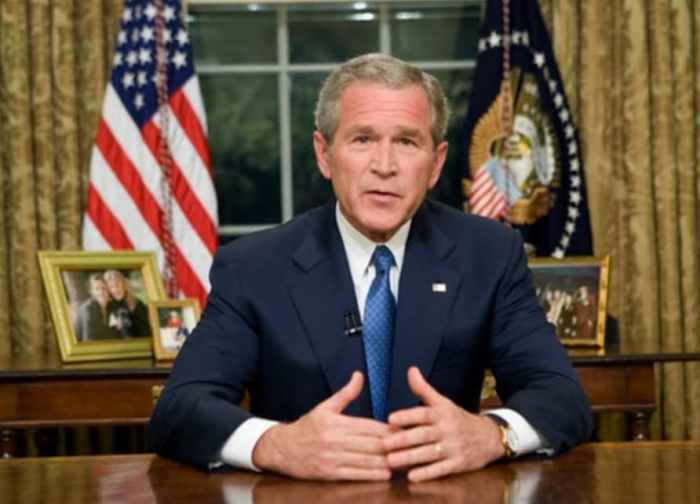
The presidency of George W. Bush (2001-2009) was a period of significant political and social change in the United States. Bush’s election in 2000 was a narrow victory, and his presidency was marked by controversy and division.
The September 11th attacks in 2001 had a profound impact on Bush’s presidency and on the country as a whole. The attacks led to the launch of the War on Terror, a global campaign against terrorism that involved military action in Afghanistan and Iraq.
Domestic Policy
Bush’s domestic policy was largely conservative, with a focus on tax cuts, deregulation, and social conservatism. He also oversaw the implementation of the No Child Left Behind Act, a major education reform initiative.
Foreign Policy
Bush’s foreign policy was dominated by the War on Terror. He launched the invasion of Afghanistan in 2001 and the invasion of Iraq in 2003. These wars were controversial and led to the deaths of thousands of American soldiers and Iraqi civilians.
Domestic Policies of George W. Bush: Part Of George W Bush Era Crossword
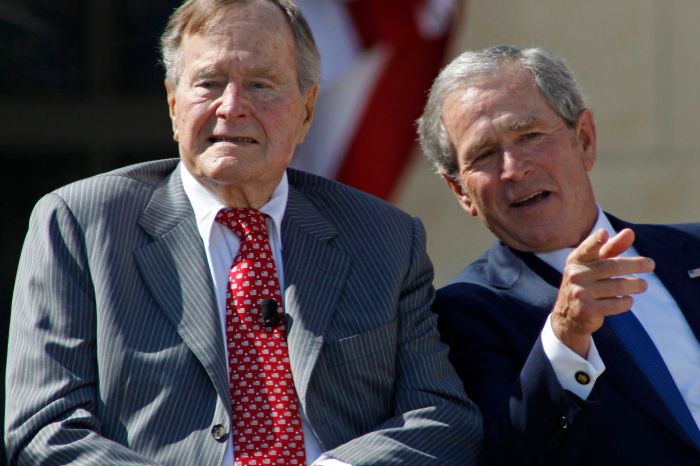
George W. Bush’s domestic policies aimed to reshape American society and economy. These policies, including education reforms, healthcare initiatives, and tax cuts, had significant impacts on the nation.
Education Reforms
Bush introduced the No Child Left Behind Act (NCLB), a major overhaul of the federal education system. NCLB aimed to improve student performance by setting standards, increasing accountability, and providing funding for schools. While NCLB was initially successful in raising test scores, it was later criticized for its narrow focus on standardized testing and for creating a high-stakes environment that led to increased stress and narrowing of the curriculum.
Healthcare Initiatives
Bush proposed a prescription drug benefit under Medicare Part D, which provided subsidized prescription drug coverage to seniors. He also supported the creation of Health Savings Accounts (HSAs), which allowed individuals to save money tax-free for healthcare expenses. However, Bush’s efforts to reform the healthcare system more broadly, such as through a patient-centered medical home model, were not successful.
Tax Reforms
Bush enacted two major tax cuts, the Economic Growth and Tax Relief Reconciliation Act of 2001 and the Jobs and Growth Tax Relief Reconciliation Act of 2003. These cuts reduced taxes for all income levels, with a particular emphasis on reducing taxes for high-income earners.
The tax cuts were controversial, with critics arguing that they primarily benefited the wealthy and contributed to the national debt.
Foreign Policy of George W. Bush
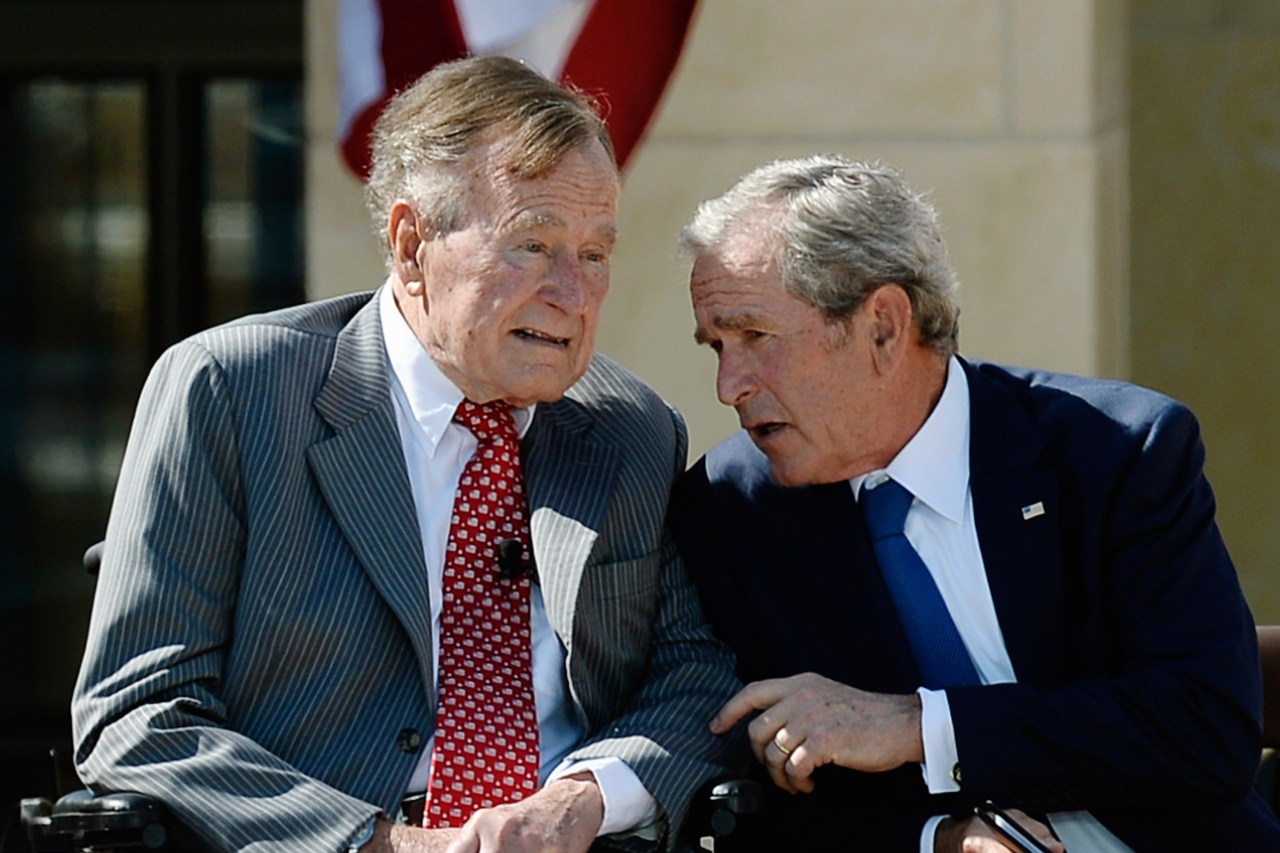
The foreign policy of George W. Bush was shaped by the September 11, 2001 terrorist attacks and the subsequent War on Terror. Bush’s foreign policy was characterized by a strong emphasis on preemptive action, the use of military force, and the promotion of democracy.
The Bush administration’s foreign policy was based on the belief that the United States had a responsibility to use its power to promote freedom and democracy around the world. Bush argued that the United States was “the last best hope for mankind” and that it had a duty to “spread the blessings of liberty to every corner of the world.”
The Bush administration’s foreign policy was also based on the belief that the United States had a right to use preemptive action to defend itself against potential threats. Bush argued that the United States had the right to “strike first” against any country that posed a threat to the United States, even if that country had not yet attacked the United States.
Major Diplomatic Initiatives
The Bush administration undertook a number of major diplomatic initiatives, including the creation of the Coalition of the Willing, the invasion of Afghanistan, and the invasion of Iraq.
- Coalition of the Willing:The Coalition of the Willing was a group of countries that joined the United States in the War on Terror. The Coalition of the Willing was formed in the aftermath of the September 11, 2001 terrorist attacks and included countries such as the United Kingdom, France, Germany, and Canada.
- Invasion of Afghanistan:The invasion of Afghanistan began in October 2001 and was the first major military action of the War on Terror. The invasion of Afghanistan was launched in response to the September 11, 2001 terrorist attacks and was intended to overthrow the Taliban regime, which was harboring al-Qaeda, the terrorist group responsible for the attacks.
- Invasion of Iraq:The invasion of Iraq began in March 2003 and was the second major military action of the War on Terror. The invasion of Iraq was launched on the basis of the Bush administration’s claim that Iraq possessed weapons of mass destruction and was a threat to the United States.
However, no weapons of mass destruction were ever found in Iraq.
Military Interventions
In addition to the major diplomatic initiatives, the Bush administration also undertook a number of military interventions, including the bombing of Serbia, the invasion of Somalia, and the bombing of Libya.
- Bombing of Serbia:The bombing of Serbia began in March 1999 and was intended to stop the ethnic cleansing of Kosovo by Serbian forces. The bombing of Serbia was successful in stopping the ethnic cleansing and led to the withdrawal of Serbian forces from Kosovo.
- Invasion of Somalia:The invasion of Somalia began in December 1992 and was intended to restore order to the country, which had been ravaged by civil war. The invasion of Somalia was unsuccessful and led to the deaths of 18 American soldiers.
- Bombing of Libya:The bombing of Libya began in April 2011 and was intended to prevent Libyan leader Muammar Gaddafi from using chemical weapons against his own people. The bombing of Libya was successful in preventing Gaddafi from using chemical weapons and led to his overthrow.
Economic Conditions During the George W. Bush Era
The economic climate during George W. Bush’s presidency was marked by both growth and challenges. The early years of his presidency saw a period of economic expansion, but the latter years were overshadowed by the 2008 financial crisis, which had a significant impact on the US economy.
Economic Growth and Challenges
During the early years of Bush’s presidency, the US economy experienced a period of growth. This growth was driven by factors such as tax cuts, increased consumer spending, and a rise in the housing market. However, the economy also faced challenges, including the dot-com bubble burst in 2000 and the September 11th attacks in 2001.
The 2008 Financial Crisis
The 2008 financial crisis was the most severe financial crisis since the Great Depression. The crisis was caused by a number of factors, including subprime lending, deregulation of the financial industry, and a housing bubble. The crisis led to a sharp decline in the stock market, a loss of confidence in the financial system, and a recession.
Social and Cultural Trends of the George W. Bush Era
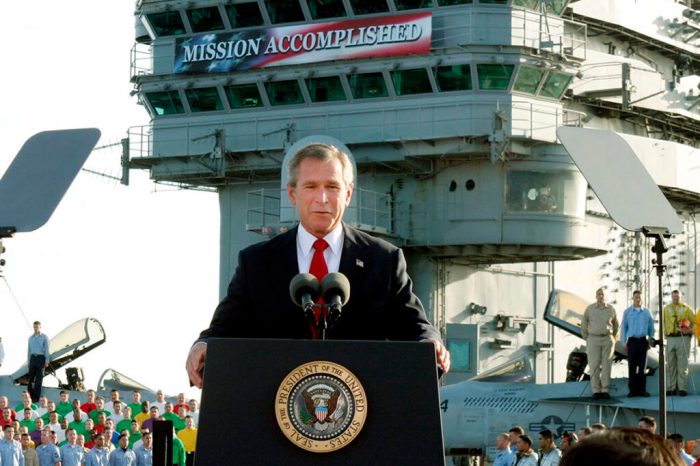
The presidency of George W. Bush was a period of significant social and cultural change in the United States. The events of September 11, 2001, had a profound impact on American society, leading to increased patriotism and a sense of national unity.
However, the Bush era was also marked by increasing polarization and division, both within the country and on the international stage.
Rise of Social Media
One of the most significant cultural trends of the Bush era was the rise of social media. Platforms such as Facebook and Twitter became increasingly popular, providing new ways for people to connect with each other and share information. Social media played a major role in the 2008 presidential election, with both Barack Obama and John McCain using these platforms to reach out to voters.
Increasing Polarization of American Society
The Bush era was also marked by increasing polarization of American society. This polarization was driven by a number of factors, including the Iraq War, the debate over same-sex marriage, and the rise of the Tea Party movement. The result was a more divided country, with people increasingly sorting themselves into like-minded groups and becoming less tolerant of opposing viewpoints.
Impact of September 11, 2001
The events of September 11, 2001, had a profound impact on American society. In the aftermath of the attacks, there was a surge in patriotism and a sense of national unity. However, the attacks also led to increased fear and anxiety, and a greater willingness to sacrifice civil liberties in the name of security.
Legacy of George W. Bush’s Era
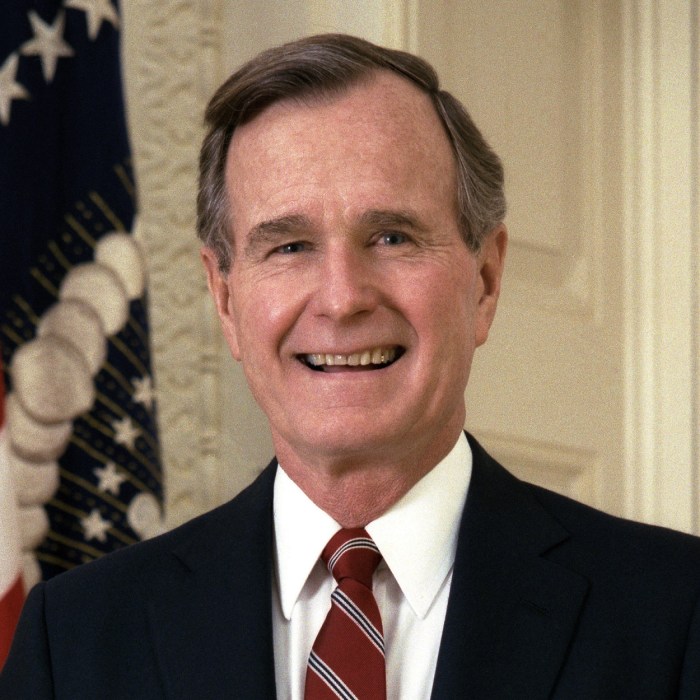
George W. Bush’s presidency was a consequential one, marked by both domestic and foreign policy challenges. His legacy is complex and contested, with different perspectives on his impact on American politics, society, and the world.
Domestic Policies
Bush’s domestic policies were largely conservative, focusing on tax cuts, deregulation, and social issues such as education and healthcare. His signature achievement was the No Child Left Behind Act, which aimed to improve education standards. However, his handling of the Hurricane Katrina disaster and the financial crisis of 2008 drew criticism.
Foreign Policy
Bush’s foreign policy was dominated by the September 11 attacks and the subsequent War on Terror. He launched the invasions of Afghanistan and Iraq, which had a profound impact on the Middle East and the global balance of power. Bush also implemented the Patriot Act, which expanded surveillance powers in the name of national security.
Impact on American Politics
Bush’s presidency had a significant impact on American politics. He oversaw the rise of the Tea Party movement and the increasing polarization of the two major political parties. His use of executive power and the expansion of surveillance programs also raised concerns about the erosion of civil liberties.
Social and Cultural Impact
Bush’s presidency also had a social and cultural impact. His emphasis on religion and traditional values appealed to some Americans, while others found it divisive. The wars in Afghanistan and Iraq had a profound effect on American society, leading to increased patriotism and a heightened sense of national security.
Controversies and Criticism
Bush’s presidency was marked by controversy and criticism. The Iraq War, in particular, was widely criticized for its lack of justification and its destabilizing effects on the region. Bush’s use of torture and the suspension of habeas corpus also drew condemnation from human rights groups.
Historical Perspectives, Part of george w bush era crossword
Historians and political scientists continue to debate the legacy of George W. Bush. Some argue that he was a strong leader who kept America safe after 9/11, while others criticize his foreign policy decisions and his handling of domestic issues.
His presidency will continue to be a subject of study and debate for years to come.
Questions and Answers
What was the significance of the September 11th attacks on George W. Bush’s presidency?
The September 11th attacks profoundly shaped Bush’s presidency, leading to the War on Terror and significantly impacting domestic and foreign policies.
How did George W. Bush’s domestic policies impact American society?
Bush’s domestic policies, such as the No Child Left Behind Act and tax cuts, had a significant impact on education, healthcare, and the economy.
What were the key principles of George W. Bush’s foreign policy?
Bush’s foreign policy was guided by principles such as preemptive action, the spread of democracy, and the fight against terrorism.